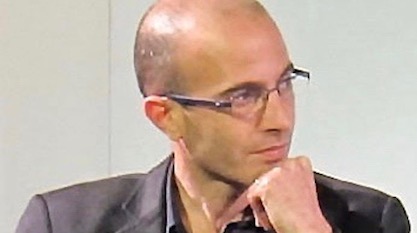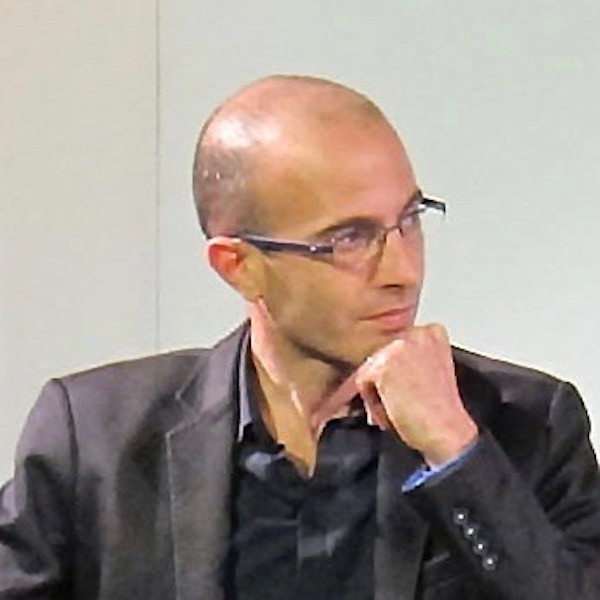 Faith & Science
Faith & Science
 Neuroscience & Mind
Neuroscience & Mind
For Transhumanists, a Dawning Realization


In a sense, there are no atheists. Humans aren’t animals operating on instinct alone. We continually make choices between competing alternatives, but those choices can’t be made fresh at every turn. Instead, to guide our path, we place our faith in a construction of values. It’s not possible to operate in the world without casting your lot with some such system — just to set your priorities for the day, if nothing else. Systems like that command our loyalty in a god-like fashion even if we don’t ascribe divinity to them.
As traditional faiths see their self-confidence eroded by the claims of materialism and evolutionism, to which the culture assigns such monumental prestige, the rise of other, totally new faiths would seem to be a certainty. Wesley Smith has identified one in the process of arising: Transhumanism.
“A Religion for Postmodern Times”
In a perceptive essay for the Acton Institute journal Religion & Liberty, Wesley describes its primary claims. Its goal is basically to show the way forward through technology to new stages in human evolution, ultimately leading to apotheosis as humans achieve near-divinity and effective immortality. From “Transhumanism: A Religion for Postmodern Times”:
Transhumanist prophets anticipate a coming neo-salvific event known as the “Singularity” — a point in human history when the crescendo of scientific advances become unstoppable, enabling transhumanists to recreate themselves in their own image. Want to have the eyesight of a hawk? Edit in a few genes. Want to raise your IQ? Try a brain implant. Want to look like a walrus? Well, why not? Different strokes for different folks, don’t you know?
Most importantly, in the post-Singularity world, death itself will be defeated. Perhaps, we will repeatedly renew our bodies through cloned organ replacements or have our heads cryogenically frozen to allow eventual surgical attachment to a different body. However, transhumanists’ greatest hope is to eternally save their minds (again, as opposed to souls) via personal uploading into computer programs. Yes, transhumanists expect to ultimately live without end in cyberspace, crafting their own virtual realities, or perhaps, merging their consciousnesses with others’ to experience multi-beinghood.
Transhumanists used to repudiate any suggestion that their movement is a form of, or substitute for, religion. But in recent years, that denial has worn increasingly thin. For example, Yuval Harari, a historian and transhumanist from Hebrew University of Jerusalem, told The Telegraph, “I think it is likely in the next 200 years or so Homo sapiens will upgrade themselves into some idea of a divine being, either through biological manipulation or genetic engineering by the creation of cyborgs, part organic, part non-organic.”
According to Harari, the human inventions of religion and money enabled us to subdue the earth. But with traditional religion waning in the West — and who can deny it? — he believes we need new “fictions” to bind us together. That’s where transhumanism comes in:
“Religion is the most important invention of humans. As long as humans believed they relied more and more on these gods, they were controllable. With religion, it’s easy to understand. You can’t convince a chimpanzee to give you a banana with the promise it will get 20 more bananas in chimpanzee Heaven. It won’t do it. But humans will.
“But what we see in the last few centuries is humans becoming more powerful, and they no longer need the crutches of the gods. Now we are saying, ‘We do not need God, just technology.’”
Ha! The old stereotype of the bearded Christian fanatic in robe and sandals carrying a sign stating, “The end is nigh!” has been replaced by transhumanism proselytizers like author Ray Kurzweil (of Google fame) whose bestselling transhumanist manifesto is titled, The Singularity is Near.
An Exemplary Prophet
The historian and bestselling author Yuval Noah Harari, mentioned by Wesley, would make an exemplary prophet for the new faith. Ensconced at Hebrew University with its panoramic view over the Holy City of the three ancient monotheist religions, Dr. Harari obtained his PhD from Jesus College, Oxford. Too perfect, almost. His Wikipedia bio goes on:
Harari was born in Kiryat Ata, Israel, in 1976 and grew up in a secular Jewish family[3] with Lebanese and Eastern European roots in Haifa, Israel.[4] …
Harari says Vipassana meditation, which he began whilst in Oxford in 2000,[12] has “transformed my life“.[13] He practises for two hours every day (one hour at the start and end of his work day[14]), every year undertakes a meditation retreat of 30 days or longer, in silence and with no books or social media,[15][16][17] and is an assistant meditation teacher.[18] He dedicated Homo Deus to “my teacher, S. N. Goenka, who lovingly taught me important things,” and said “I could not have written this book without the focus, peace and insight gained from practising Vipassana for fifteen years.”[19] He also regards meditation as a way to research.[17]
Harari is a vegan, and says this resulted from his research, including his view that the foundation of the dairy industry is breaking the bond between mother and calf cows.[4][20] As of September 2017, he does not have a smartphone.[21]
Well, the part about periodic fasts from social media and abstaining from a smartphone sure sounds great, if you’re privileged enough to be able to get away with such things.
New religions aren’t necessarily founded already knowing that that is what they are destined to become. At some point, though, the realization dawns. Wesley Smith is pointing to such a dawn on the part of the Transhumanists. Watch out, though. The gentle, meditative Dr. Harari aside, supposedly godless value constructions can be as intolerant and coercive as any old religion ever was.
Photo: Yuval Harari, by Daniel Naber [CC BY-SA 4.0], via Wikimedia Commons.
